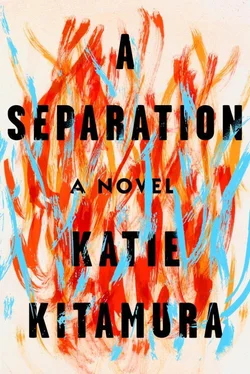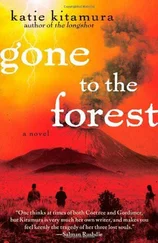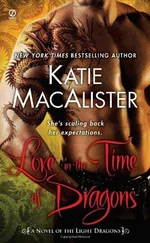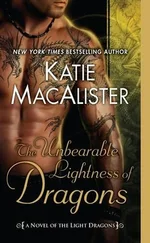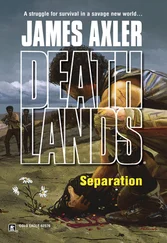9.

Was that why, in the end, I did not tell Isabella and Mark that Christopher and I had separated—because of her question, concealed as a statement— he died loved —and because of the guilt, the obvious guilt of the living, which does not necessarily fade with time as promised? Even as early as that first visit to the police station, I already knew that I would not tell Isabella, that the moment to tell her would come and go, and I would not speak.
After I identified the body and was told I was free to go, when I stepped out of the police station, Stefano was waiting. The officer had ordered a car to take me back to the hotel. Stefano ran to open the car door, his face growing flushed, as if at the sight of me. When I reached the car he stopped and then gripped my hand in both of his, murmuring some words of condolence that I barely heard, perhaps I heard about your husband or Such terrible news, finally he lowered his head and said only that he was very sorry.
I nodded, I saw that he was in a strange position, caught between genuine sympathy—we were not friends, we had only spent a few hours together, and yet he was essentially empathetic, too human not to be able to imagine what I might be feeling—and some emotion that was more compromised, an expression of relief if not triumph. I did not yet suspect Stefano of greeting Christopher’s death with happiness, I believed him to be a sensitive man, and the contemplation of death in anything but the abstract is difficult even for those who are not terribly sensitive.
And yet it was a solution of sorts, even in my stunned state I was able to see this, perhaps I even went so far as to think, At least someone will have benefited from this, there were upsides and downsides to everything, even the most extraordinary and unhappy events. I sat in the back of the car, I felt at once that Stefano was nervous, he did not know what to say, how to behave around the recently bereaved, unlike his great-aunt, he had no experience in the matter. I don’t know what to say, I am shocked, he said.
I nodded, there was nothing to say in response to his comment, mostly I wished that he would stop talking. But he didn’t. I happened to drive by the place where they found his body, he continued, I was working, the man I was driving was in a hurry, that road is the fastest route between the two villages. As he spoke, I covered my face with my hands. I had a headache, my face was hot. I don’t know where the body was found, I said, they didn’t tell me.
I didn’t realize it was your husband, he hastened to add. The road was blocked and there was a police car, but I didn’t see the body—unbidden, the image rose up, the legs under the tarp, the feet askew, he continued speaking—later I found out who it was, it was a shock, I had driven him a couple of times when he needed a car, he had been in the village for almost a month.
I lowered my hands. It was a moment of strange confirmation, I tried to remember what Stefano had said about Christopher—almost nothing, only that he knew I had been waiting for him. Certainly he had not said that Christopher had been a customer, that he had sat in the back of his car, like I had, as I was doing at that very moment. Still, hadn’t I imagined Christopher riding in Stefano’s car, occupying the space alongside me, the possible synchronicity merely unsettling? Now that Christopher was dead, the link between him and this man suddenly seemed more urgent, unwieldy with possible meaning.
Had Stefano driven Christopher before discovering that he had slept with Maria, or after, or both? Perhaps Christopher and Maria had arranged an inland tryst upon Christopher’s return from Cape Tenaro—a strange location, but not impossible, a walk in the countryside after a drive—and Stefano had followed Maria there, seen evidence of the errant couple together, an enraging sight. And then, once Maria had reluctantly returned home, he might have leapt from the shadows to attack the man who had so carelessly upended his life—people lost their heads, there was some question as to whether it had been a blow designed to kill.
Stefano did not seem aware that he had said anything amiss. How many times had he driven him, I wanted to ask, and when most recently? Perhaps he had even picked up Christopher—Christopher, newly returned from the embrace of the unnamed woman in Cape Tenaro and already in search of another—outside the local bus station, although Christopher would never have taken the bus, the scenario was impossible. Stefano now looked up into the rearview mirror, he had felt that I was watching him.
I looked away. Perhaps Christopher had forgotten Stefano’s name, or perhaps he had remembered and greeted him at the impossible bus station, having been reminded by Maria, she might have mentioned Stefano in a misguided attempt to make Christopher jealous, Christopher who, in my experience, did not get jealous. Perhaps Christopher had even telephoned him—a business card, passed along on an earlier journey—they might have made conversation as they drove, perhaps Christopher had told Stefano details of his trip, his excursion, what were to be his final days, about which none of us knew anything.
Stefano was looking at the road, he had long since fallen silent. This vision—or was fantasy the more honest word, I hardly knew—had left me winded, it suddenly seemed a mere indulgence of the imagination. If Stefano was guilty of this crime, of killing a man, would he have said to me—the widow, the person who should have been most concerned—that he had driven Christopher at all, would he have knit their two histories yet closer? Or perhaps it had been a nervous response, they say that the guilty sometimes wish to be apprehended.
He sat in the front of the car, suddenly an unknown quantity, a physical mass of potentialities. I sensed that he was a man capable of violence, but in itself that is nothing, most men are, and most women too. There was something terrible about falsely accusing a man of murder, even in the imagination. It was an act of speculation that contaminated everything, once seeded, doubt is almost impossible to dispel, I knew that already from my relationship with Christopher, the marriage had died at the hand of my imagination. Still, I could not help myself. I leaned forward and asked, When did you drive Christopher?
Early in his stay, only a couple times. He didn’t use me again, I don’t know why.
He replied promptly, his voice entirely natural, matter-of-fact. He spoke like a man who had nothing to hide and he said nothing further, he must have thought, The woman is in a state of shock, best to leave her alone, there is nothing to be said. I stared at the back of his neck, at his hands on the wheel, again I wondered what he was capable of and then I felt a wave of unguarded emotion. Whatever he did or did not do, his life had been derailed by Christopher’s arrival. I again felt—it was impossible to deny, I recognized it at once—sympathy for the man. The same mechanism of destruction had operated upon my own life, it was something that we shared. I was silent, neither of us said anything further, until our safe arrival at the hotel.
• • •
Two mornings later, the day after Isabella and Mark’s arrival, I met Isabella for breakfast. When I arrived, she was seated at a table on the far edge of the terrace, one with unimpeded views of the water. Her back was to me, her body was rigid, she looked like a statue or wood carving, entirely immobile, and although she must have been tired—when she turned, I saw that there were lines around her eyes and mouth, that her delicate face was puffed with strain—she also looked ageless, mummified by the force of her personality.
Читать дальше
